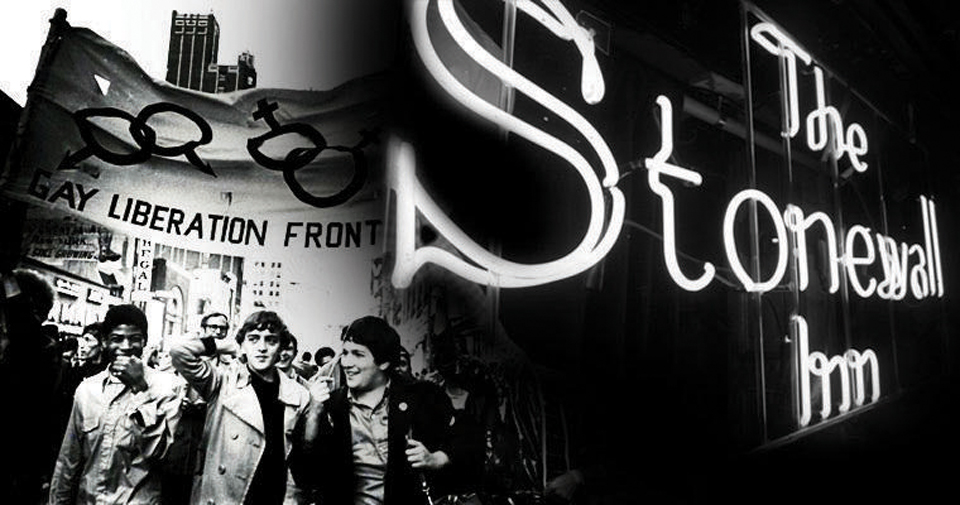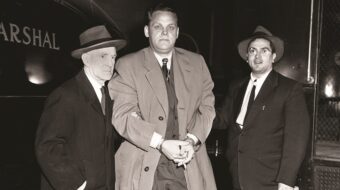
Pride month ends this week, and today the LGBTQ community commemorates the 49th anniversary of the Stonewall Rebellion, the confrontation with police in New York City’s Greenwich Village that sparked the modern gay rights movement.
With the announcement yesterday that Supreme Court Justice Anthony Kennedy is retiring, LGBTQ people across the country are awaiting to see whom President Trump will nominate to replace him. Though a conservative justice, Kennedy supplied the swing vote for many progressive victories, including the ruling that legalized same-sex marriage three years ago and the Lawrence ruling that overturned sodomy laws in 2003. It is not a happy note to end Pride month 2018.
But no matter whom Trump nominates to the court or what kind of reversals could lay ahead, one thing is certain: The struggle for LGBTQ equality will go on, just as it has for nearly a half-century. Pride is something to be celebrated by more than just the LGBTQ community, though. It is a commemoration of the fight for civil rights and against police repression.
Leading up to the Stonewall events of June 28, 1969, many had been fighting against anti-homosexual laws. While Stonewall was perhaps a sea change in the strength of the movement, the struggle for gay equality had been around for years.
Gay bars had long been illegal in most localities, and in New York, any place where three or more homosexuals gathered was considered a gay bar and subject to losing its liquor license. Such rules added to an already homophobic society. The Mattachine Society of New York, a gay rights organization founded in the 1950s, and the American Civil Liberties Union challenged this unconstitutional law head on. Though no lawsuit was ever filed, the news coverage of the challenge forced the city to legalize gay bars. (Among the Mattachine Society’s founders was Communist Harry Hay.)
What still remained was police entrapment and repression. Vice cops would go to the newly legal gay bars and arrest patrons, treating them as prostitutes. Between pressure from judges, whose schedules were being overwhelmed with these cases, and from the community, the police commissioner announced that this policy would end.
However, as the events of June 28, 1969, showed, the issue of police targeting of gay bars was far from over. In a summer flurry of bar raids, focused on gay, Black, and Hispanic bars, the police charged that the Stonewall Inn was violating liquor control laws. At 3 a.m., eight plain-clothed police officers entered the bar and ushered patrons out. As raids had become a common event, most peacefully walked out and waited for their friends.
The mood shifted, though, when a police wagon drove up. The raiding officers forced two bar employees and four patrons into the wagon. The patrons realized that this was not the same as the other raids they had been through. As a result, people started throwing things at the wagon as it drove away. The crowd grew more and more angry, and the items being thrown became bigger.
Violence broke out between police, who had stationed themselves inside the bar, and protesters. The police response was to beat protesters and threaten to shoot.
The protests continued on and off for a number of days. The crowd at the June 29 demonstration, the morning following the raid, was estimated to be in the thousands.
On July 2, the demonstrations turned more violent, with the police using their nightsticks indiscriminately against the crowd. Those out in support of gay rights were left battered, bruised, and bloody in the streets.
The significance of Stonewall is not the violence, though. It was the first time that there was active resistance against the persecution of homosexuals. While the LGBTQ rights movement stretches back much earlier than June 1969, the Stonewall Rebellion set off a new militancy and openness to the movement.
Starting in 1970, marches have been held every year to mark that shift, and the entire month of June has been set aside as a time to be proud of the past, present, and future of the LGBTQ movement.












Comments